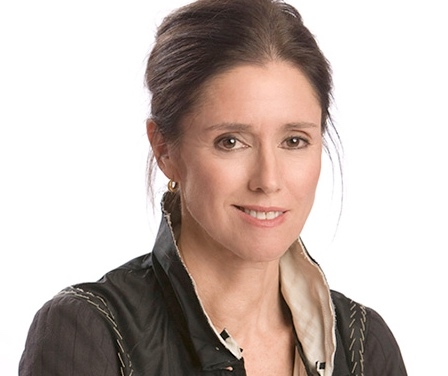Julie Taymor: A Midsummer Night's Dream is the greatest dissertation on love
The director of ”The Lion King” and ”Spider-man: Turn Off the Dark” on her latest production, which has transferred to the big screen

© Joan Marcus
Julie Taymor's production of A Midsummer Night's Dream, which premiered in 2013 at the Theater for a New Audience in Brooklyn, is released in cinemas today. Here, she tells us about her overriding vision for the play, and why filming it is true to Shakespeare's original intentions.
Julie Taymor: "I wanted to do this play if I could find the right Puck and find the fairy world. Every director has to deal with that – it's like when you do The Tempest and you say 'Caliban, Ariel, how are you going to do this?' So I contacted Kathryn Hunter and she said yes; that was the beginning of it. And I thought a lot about the fairy world. I wanted unfettered, young, anarchic energy, and the way to get that was to bring in lots of children. I wanted the forest to echo something of the feeling of Lord of the Flies.
"Shakespeare has written the greatest dissertation on love. Titus for me is the greatest dissertation on violence, and [Dream] is the greatest dissertation on love. You have love in every form – young innocent love, old married love, conquering love and mistaken love. I think what's wonderful about the children is that they're before all the rules… That's the strongest thing for me about the show, that sense of anarchy.
"I work from finding an ideograph. In The Lion King it's the circle of life – you see it everywhere, in the sun, in Mufasa's mask, in the wheels – that motif is the glue. In Dream, it's very simple. Where do we dream? In a bed. What's on a bed? A pillow and a sheet. Those are my tools, that's it, and a black magic box created by the genius Es Devlin.
"I was very proud of the live production but Shakespeare on film is a big plus, because the language is more comprehensible and you can see the reaction shots. So when Titania has her long global warming speech [Act 2, Scene 1], normally she would have to be facing front, so Oberon's back is to the audience. But the beauty of film is we can watch him listening – we can sense the impact of her words on him.
"I also love the moment when Oberon, played by the magnificent David Harewood, is going 'I've got the boy but now I've got to take this horrible spell off my wife' [Act 4, Scene 1] – and when she wakes up and sees him the connection is palpable, it's sexual… I didn't know what a great play it was until I worked on it with this company.
"I had 16 camera positions over four performances. I got those cameras in the best seats in the house for every moment. It took me a month to go through all the material just to select the best shots, but I feel it was worth it, because flm is forever, while our initial production only ran for 12 weeks.
"I much prefer productions on film that have been edited this way… When you edit it live there's only so much preperation you can do – plus you don't have camera movement, you don't have cameras on stage. With this approach there's a closeness to the actors that brings a liveness. You still get a connection with the audience – after all, the actors are still projecting to the live audience. So it's not false in that sense. But there's a wonderful level of intimacy to it, which is what Shakespeare originally intended."
Julie Taymor's A Midsummer Night’s Dream is in cinemas from today (21 June)












